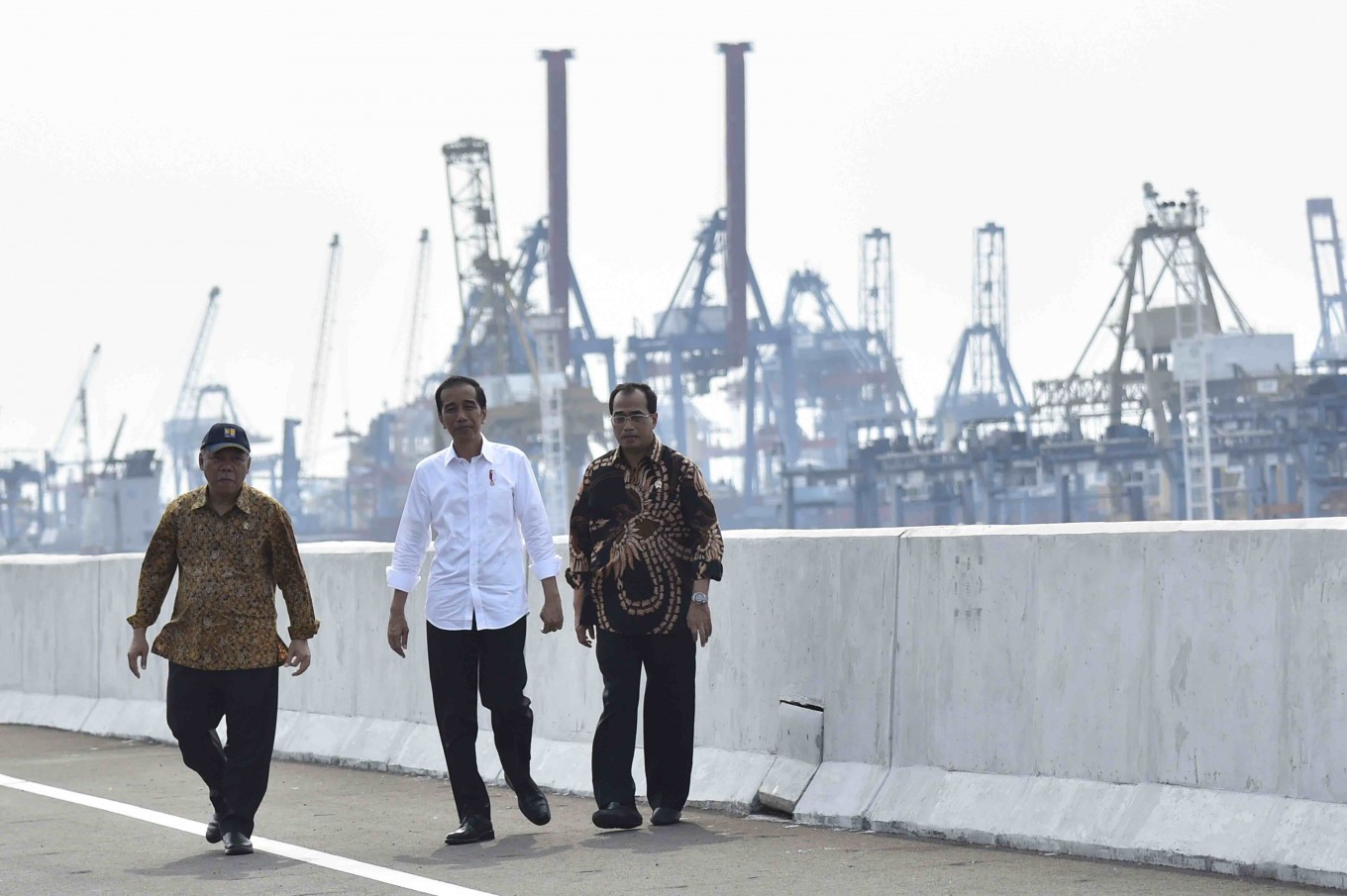Popular Reads
Top Results
Can't find what you're looking for?
View all search resultsPopular Reads
Top Results
Can't find what you're looking for?
View all search resultsUnlocking the infrastructure financing problems with sukuk
Non-Muslim nations have tapped into the Sukuk market to finance infrastructure projects.
Change text size
Gift Premium Articles
to Anyone
T
he infrastructure development is one of the most important elements in achieving national development goals. With the availability of infrastructure and other public facilities, basic human needs, both economically and socially, can be met properly.
In recent years, the Indonesian government has put a strong emphasis on infrastructure development such as toll roads, ports, railway, including an emphasis on access to affordable housing, and electricity. However, Indonesia a lot of funds to carry out such important projects.
The funding needs are reflected In the Government's Mid-term Development Plan (RPJMN). Based on the RPJMN, it is estimated that Indonesia will need Rp 5,519 trillion in funds to finance the government's infrastructure development plans for the 2015-2019 period. However, through the state budgets (APBN), the government can only deliver Rp2,216 trillion or roughly 40 percent of the required funds. The remainder should originate from regional budgets (APBD) reached about Rp 545 trillion or about 10 percent of total funds are expected to come from regional budgets, Rp 1,066 trillion or about 20 percent from State Owned Enterprises (BUMNs) and Rp 1,692 trillion or about 30 percent from the private sector.
According to the Asian Development Bank (ADB), Indonesia needs at least US$450 billion in investment to develop infrastructure facilities between 2010 and 2020.
With the limited funds, Indonesia faces difficulties in realizing the infrastructure development plans. This situation has emphasized the need to financial innovation. To date, in financing the infrastructure projects, Indonesia still relies on traditional sources of fund such as those from banks. Given the nature of infrastructure assets are long term while bank loans are short to medium term-maturities, excessive reliance on banks to finance long-term projects is less than ideal and has created the risk of maturity mismatch.
As a consequence, alternative sources of financing are needed to support infrastructure development. In this context, Infrastructure can be financed using different capital channels and involve different financial structures and instruments.
Given the nature of infrastructure projects that normally require large scale and long-term financing, much attention has been recently paid to the capital market instruments such as Islamic bonds or sukuk. The method of raising funds through sukuk has become an integral part of Islamic finance and a pivotal pillar to support and partly shoulder infrastructure financing needs.
The infrastructure sector has seen a large portion of the Sukuk fund raised around the globe. In fact, in the past, not only by Muslim countries, but also non-Muslim nations have tapped into the Sukuk market to finance infrastructure projects. For example, in 2013, Nigeria and Senegal both issued sukuk to finance large infrastructure investments. In 2014, the United Kingdom became the first Western government to issue a sovereign sukuk – this particular issue was linked to real estate property.
There has been growing recognition that Islamic finance offers a variety of financing structures that are viable alternatives to conventional finance. The sukuk market has been particularly instrumental for fundraising and investment activities. It also suits well for filling the long-term infrastructure financing gap and supporting the development of sustainable infrastructure.
Considering that infrastructure investment is the key for Indonesia to achieve a sustainable economic growth, Islamic financing such as sukuk has great potential to provide an alternative solution for infrastructure financing. The contribution of sukuk for infrastructure development is supported by a number of catalysts. First,sukuk can potentially have wider market segment compared to conventional products, as it targets both sharia and conventional investors.
Second, there are large number of state owned enterprises and their subsidiaries. The important role of SOEs will have significant contribution for Indonesia’s sukuk market to grow larger. Especially, at the same time Indonesia government is aggressively encouraging infrastructure development which needs a lot of money. In that case, SOEs can issue Sukuk that can attract domestic and foreign investors.
Third, given its role in the mobilisation of long-term funds, sukuk is the most proper instrument for infrastructure financing as its underlying is the project itself. Thus, there will be no bubble as all Sukuk issuance are backed by a certain underlying asset.
Finally, with regard to policy incentives, Government Regulation No. 11/2014 regarding OJK Levies, requires that registration fees of public offering is 0.05 percent of total amount of issuance or maximum of Rp750 million. Special for sukuk offering, the maximum fees has been limited to Rp 150 million only for each Sukuk issuance.
Infrastructure plays a key role in promoting and sustaining rapid economic growth. In order for this role to be realized, unlocking the great potential of sukuk will be necessary to function as a bridge between infrastructure projects and funding needs.
***
The writer works at the Islamic Capital Market Directorate of Indonesia Financial Services Authority (OJK). The views are his own.
---------------
We are looking for information, opinions, and in-depth analysis from experts or scholars in a variety of fields. We choose articles based on facts or opinions about general news, as well as quality analysis and commentary about Indonesia or international events. Send your piece to academia@jakpost.com. For more information click here.









